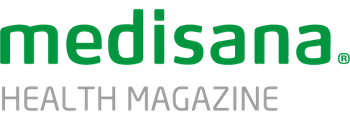Organic is best, right?

“Healthy living” has become a trend, as shown by the boom in the fitness, health and wellness industry in recent years. For example, more than 11.3 million people have tried yoga at least once, others cycle to keep fit or hike across Europe – all in the name of health.
“Fasting”, “healthy food” and “superfoods” are the latest nutritional trends for staying healthy and living conscientiously. For lots of consumers, nutrition plays an increasingly important role. Many consumers therefore opt for organic foods because they promise healthier produce and a healthier life as a result.
Robert Kecskes of the GfK, a German consumer research association, comments: “Organic has become mainstream and is no longer questioned by consumers, but rather expected”. This statement leads us to wonder:
Is organic healthy? Scientific studies are still unable to prove this and scientists dealing with the topic of nutrition and health seem irritated by the question.
Citizens are uncertain
According to a recent representative survey by a German statutory health insurance company, 61 percent of German citizens are completely uncertain and complain that there are too many different recommendations when it comes to nutrition and they have no idea what’s right or wrong any more. 70 percent of those surveyed said that food should taste good and fill you up. That is the most important thing. Only the individual can decide what’s healthy for them.
Most consumers are aware that healthy eating contributes to our general wellbeing and forms part of a healthy lifestyle and balanced diet.
Our health is generally very precious. Unfortunately, the cases of illness resulting from poor nutrition, referred to as diet-related diseases, has increased in recent years. But these can be prevented: our food should be varied and fresh – and ideally organic.
Organic or non-organic?
Organic supermarkets have sprung up like mushrooms and discount stores attempt to outdo each other with organic products. But where has this development come from? The fact is that the organic food business has been booming for years.
Think about it: Rewe has a store network of around 10,719 shops, of which 3,300 REWE stores are in Germany. Edeka has more than 7,000 stores in Germany. There are also 4,300 Netto stores, Lidl with over 3,200 stores and around 1,000 Kaufland stores. Almost 4,500 Aldi Süd and Aldi Nord stores have arrived. In total, there are more than 35,000 food stores in Germany and all of them offer a range of organic products. “How can that be?”, some consumers ask themselves, and where are these millions of tonnes of organic food coming from?
If the label says organic, is the food actually organic?
We investigated further: organic potatoes come from Egypt, the apples from Italy, the wheat from Romanic, grain from Kazakhstan and eggs from Italy, carrots from Israel and cucumbers from Spain or Bulgaria. Germany is the world’s second-largest organic market after the US, meaning a larger quantity of organic produce has to be imported. 95 percent of organic paprika comes from abroad, sunflower seeds and millet come from China and 88 percent of organic tomatoes do not originate from Germany either.
Products with an organic label therefore have little meaning. Organic fruit and vegetables from discount stores meet the minimum requirements of an organic product but no more. According to the Organic Food Production Alliance, the organic market made more than ten billion euros over the past year.
Trust is good…
Organic products from the supermarket are therefore no healthier than standard produce, a study by Stanford University confirmed. The German consumer organisation Stiftung Warentest came to the same conclusion. Particular care should be taken if purchasing from discount stores, they write. “Organic philosophy? Not a chance! Often, only part of the business produces organic food; it’s about quantity, not quality”.
More than 60 percent of all organic products are sold in supermarkets and discount stores whereas natural food stores, i.e. the real organic retailers, are showing fewer signs of growth. Their existence is threatened by the power of the large chains because they cannot compete with the prices of the discount stores. Despite this, natural food stores enjoyed slight growth over the past year.
In 2018, Wirtschaftswoche magazine wrote: Aldi and others place organic retailers under pressure. “Discount stores and supermarkets have already secured around two-thirds of the organic market. And they’re continuing to dominate.”
All retailers have to respond to the constantly changing requirements of their customers. In the past year, 50 new store openings were offset by 101 closures as Elke Röder, Managing Director of the Association of Organic Processors, Wholesalers and Retailers (BNN), reports in Der Spiegel magazine.
If you ask the discount stores where their goods are coming from, you often get the following statement: For “data protection reasons”, the tracking of goods is only possible up until the point at which goods have been unpackaged, as the NDR journal reports. In other words, consumers are kept in the dark and not informed about where the goods are coming from.
But one thing is clear: consumers are demanding more organic products, retailers have to deliver and in a market worth billions, it’s of little surprise that no-one considers whether everything conforms to EU regulations.
According to the “Spiegel”, in June 2017 representatives of the EU parliament and EU member states agreed on stricter regulations regarding imported organic produce, however these tighter checks will only enter into effect in 2021 and, in addition to production, the supply chain should also be more rigorously controlled.
What does organic actually mean?
Everything must be produced under appropriate conditions, and this applies for the animals whose meat, fish and eggs we consume. The use of antibiotics or growth hormones is prohibited. Organic produce may only contain up to five percent non-organically produced foodstuffs.
The use of chemicals or fertilisers is also not permitted. Even though this sounds good at first, it is not clear whether the checks in other countries are comparable with those in Germany.
Details of origin
It is compulsory to provide details about the countries of origin of the raw ingredients in organic products. If all raw ingredients come from the same country, the name of this country can be provided. In other cases, the following details are differentiated between: “EU agriculture” if the agricultural raw materials come from the European Union, “Non-EU agriculture” if they come from third countries and “EU/Non-EU agriculture” if they are partly from the EU and partly from third countries.
Assessment from the viewpoint of the Verbraucherzentrale consumer association
From the Verbraucherzentrale’s perspective, “EU” or “non-EU” means very little. The description “EU/non-EU agriculture” is particularly unhelpful for consumers who want to know the origin of their products. A survey by the Verbraucherzentrale consumer association shows that consumers do indeed want to know where their food is coming from.
Consumer associations require more concrete details about the countries of origin of organic foods. If all raw ingredients come from one country, it should be mandatory to name this country.
Only natural food stores offer 100 percent organic quality!
Natural food stores are predominantly managed by the owners and only few have more than two branches. Alongside the owner-managed stores, there are only a few small chains and direct sellers who offer their goods to farm shops and weekly organic markets.
Organic retailers have the benefit of consultation and primarily offer local and seasonal organic produce. Short transport routes protect the climate and environment, which many consumers value today in light of climate change. However, specialist retailers are hampered by the fact that discount stores are making life more difficult for them.
But, as we know, necessity is the mother of invention: Specialist retailers have merged their stores with social gathering places, incorporating a small bistro or cafe into the store. “People who want to protect the environment and climate change meet up here and hope to make the world a better place by shopping in these places,” says Elke Röder.
And the concept seems to be working. Specialist retailers noticed a significant improvement over the past year with a sales increase of 5.2 percent.
Cheaper and direct?
Consumers often don’t act as they say they do: A recent market study on the marketing company AMM shows that the organic offensive of Aldi, Rewe and others is going down well with consumers.
60 percent of those surveyed thought it was good that they could buy organic produce from Edeka, Rewe, Aldi and Lidl. It is cheaper than buying from specialist stores and you don’t have to make a separate shopping trip to buy organic, many of those surveyed found.
However, the following should be clear for consumers: cheaper does not necessarily mean better. If you really want to do something good for your health, you should still consider making a little detour to a specialist retailer. Elke Röder, Managing Director of the Association of Organic Processors, Wholesalers and Retailers (BNN), views organic products in supermarkets as ambivalent.
Good to know: Only the certified providers “Naturland“, “Demeter” and “Bioland” set stricter conditions for their suppliers. For example, animal manure containing antibiotics is also not permitted. According to the EC regulation on organic production, around 45 substances are permitted, at Bioland this is 22 and at Demeter just 20. In any case, genuine organic is better for consumers, animals and the environment.
Our advice is that direct sellers are the most genuine with the best products. Visit organic weekly markets and organic farms in your area.
Think about what you’re putting on your plate! And opt for seasonal and local produce!




